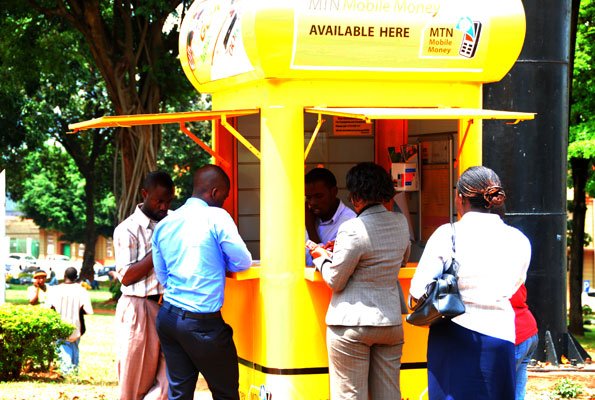Contrary to fears that implementation of the Electronic Transfer Levy (E-levy) would collapse the business of mobile money agents, there seem to be a new revenue stream for them – namely cash-in transactions, which have become the preference of customers.
This comes as a result of some customers’ desperate attempt to avoid the tax, as transactions done as cash-ins – otherwise known as deposits – have become the order of the day since the 1.5 percent tax came into effect about three weeks ago.
Rather than send monies through their own mobile money accounts, customers withdraw the cash and give to an agent to be sent to the destination mobile money account, by which the E-levy in both transactions is not applied – thereby avoiding payment of the tax.
However, this type of ‘smart’ move from customers is not at all coming as a loss to the agents, since telecommunication companies still charge clients 0.75 percent of the transaction value then give commission to the agents.
Most of the agents explained to the B&FT that even though there were panic-withdrawals a few days after the E-Levy took off, activities picked up immediately when patrons realised mobile money agents were exempted from the E-levy charges.
“The onset was a bit slow, especially a day before the E-levy came into force – they did panic-withdrawals. The following day people were afraid to make deposits; but when we educated them that there is no E-levy charge on depositing and withdrawals, they came back. So far so good, we are managing,” Daniel Osei, a MoMo agent at Kasoa, told the B&FT.
Another mobile money agent at Makola Market who wants to be called Belinda said: “Now the cash-in has increased; all those who used to load their wallets do not do that anymore, they give us the money and we do the transfer on their behalf and this doesn’t attract E-levy. One way or another, the E-levy has helped us.
“For me, that is how I see it – because the more cash-in transactions you do, the more commission you get at the end of the month from your service provider. So the E-levy has really helped us, the merchants.”
Esther Amoako, also a mobile money agent at Djanman near Weija, told the B&FT in an interview that: “For now, when it comes to deposits, yes, its patronage has increased because people are refusing to transfer money from their phones to different numbers.
“They rather come and withdraw and deposit it to the number which they want to send money to; so in that area, there’s been an increase as compared to before when they deposited the money on their numbers and did the transfers themselves.
“Now if they have the money on their phones, they withdraw it and ask me to send it on their behalf. This will reflect into commission from the Telcos at end of the month. So in other words, more money for us.”
Lawful or unlawful
The issue of whether it is lawful or unlawful for mobile money agents to undertake such transactions has become debatable after a member of the E-levy Technical Committee, Patrick Frimpong Danso, said on a local television network, UTV, that the practice is illegal.
But the agents disagree, saying they are only doing deposits, which their system allows them to do, and are permitted by the telecommunication companies (Telcos).
“We do not do transfers, we do cash-in cash-out. We do deposits and withdrawals; we don’t transfer. You cannot even transfer from a merchant SIM. Transfer is only on the subscribers SIM. The subscriber does not have deposits on their numbers, it is agents who have the deposits,” Mrs. Amoako said.
“Prior to the E-levy, the network providers told us not to transfer money to other people on the customers behalf, but it didn’t work because most of the customers claim they cannot do the transaction themselves,” Belinda said.










